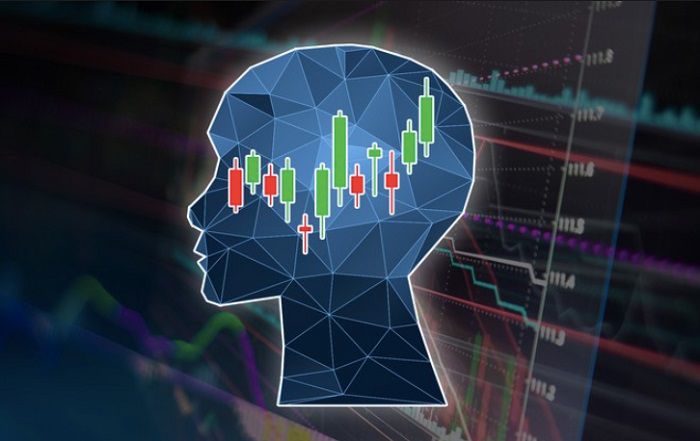Forex trading, an intricate and fascinating financial endeavour, requires a deep and thorough understanding of market dynamics and mastery of one’s psychology. Particularly in the bustling financial hub of Singapore, advanced Forex trading emerges as a discipline that marries analytical acumen with emotional resilience, enabling traders to navigate the complexities of the global currency market with confidence and finesse.
With its ever-evolving nature and constant fluctuations, the Forex market has become a captivating arena that demands continuous learning, adaptability, and strategic thinking. Embracing this multifaceted challenge, traders immerse themselves in the vast array of trading strategies, chart patterns, economic indicators, and risk management techniques. They leverage their knowledge and experience to seize opportunities and mitigate risks, aiming for consistent profitability in this dynamic landscape.
The art and science of Forex trading
Forex trading is often perceived as a game of numbers, a science based on meticulous analysis and calculated risks. Traders examine trends, interpret indicators, and scrutinise economic reports to predict currency movements. In Singapore, where trading volume is substantial, the market can scurry, making analytical proficiency an essential element of successful trading.
However, even with the most sophisticated analysis, the world of Forex trading is fraught with uncertainty. Market dynamics can shift rapidly, influenced by unforeseen events or sudden changes in sentiment. This volatility is where psychology comes into play.
The role of psychology in advanced Forex trading
The psychological dimension of trading is often the difference between an ordinary and an advanced trader. Emotional control, patience, discipline, and mental fortitude can be critical for successfully manoeuvring the market. Advanced traders must clearly understand their internal states, attitudes, feelings, and motivations and remain aware of how they might impact their trading performance.
One crucial psychological skill is risk management. Accurately assessing risks and adjusting can significantly improve one’s trading outcomes. Advanced Forex traders can identify potential losses, adjust their trading strategies, and limit risk exposure.
Another psychological factor is the ability to make unbiased decisions. Although trades are based on technical analysis, personal biases can cloud a trader’s judgement and lead to costly mistakes. Advanced Forex traders strive for objectivity, keeping emotion out of their decision-making process to maximise profitability.
Volatility strategies
Volatility is one of the most captivating concepts in the forex market. Traders use volatility to take advantage of short-term price changes and capitalise on quick profits. Technical analysis forms the basis of these strategies, with traders monitoring trading patterns and market trends to identify entry and exit points. In Singapore, where conditions can change rapidly, volatility strategies can benefit advanced traders.
The most popular volatility strategies are scalping and day trading. Scalpers attempt to quickly capture multiple small gains by entering and exiting the market. Day traders continually monitor their positions throughout the day, plotting entry points based on technical indicators such as Bollinger Bands and Fibonacci Retracement.
Developing advanced trading strategies
The journey for advanced Forex traders continues after understanding volatility strategies or mastering risk management. As markets evolve, so must trading strategies to ensure successful long-term outcomes. It means staying abreast of trends and anticipating changes in the market.
In Singapore, where competition is fierce, this involves a commitment to continual learning.
Advanced traders must continually review their strategies, identify areas for improvement, and develop new approaches that can outmanoeuvre the competition. Developing innovative tactics such as automated trading or algorithmic trading systems can give advanced traders an edge.
The ever-changing dynamics of the Forex market also necessitate a proactive approach to trading. Advanced traders must stay informed, identify potential opportunities and threats, and adjust their strategies accordingly. It requires a deep and thorough knowledge of technical analysis and a knack for spotting emerging trends. Advanced Forex traders can stay ahead of the market and maximise profits by continuously refining their skills and knowledge.
Advanced Forex traders must also consider Singapore’s regulatory changes and compliance requirements. The Monetary Authority of Singapore regulates the financial sector in the country, introducing new rules to safeguard investors and promote fair trading practices. Advanced traders must keep up with these developments to ensure they remain compliant and that their trading activities do not violate any laws.
Conclusion
Advanced Forex trading is a demanding yet rewarding discipline. Traders can confidently navigate the global currency market’s complexities by combining analytical understanding, technical proficiency, emotional resilience, and psychological insight. Singapore’s dynamic environment provides an ideal platform for advanced Forex traders to leverage these skills and reap potential profits.
With a sound understanding of volatility strategies and the ability to accurately assess risks, advanced traders in Asia can take advantage of short-term price movements and capitalise on quick gains. By keeping their emotions in check and making unbiased decisions, they can maximise profitability while managing the ever-present uncertainty in Forex trading.


Comments are closed.